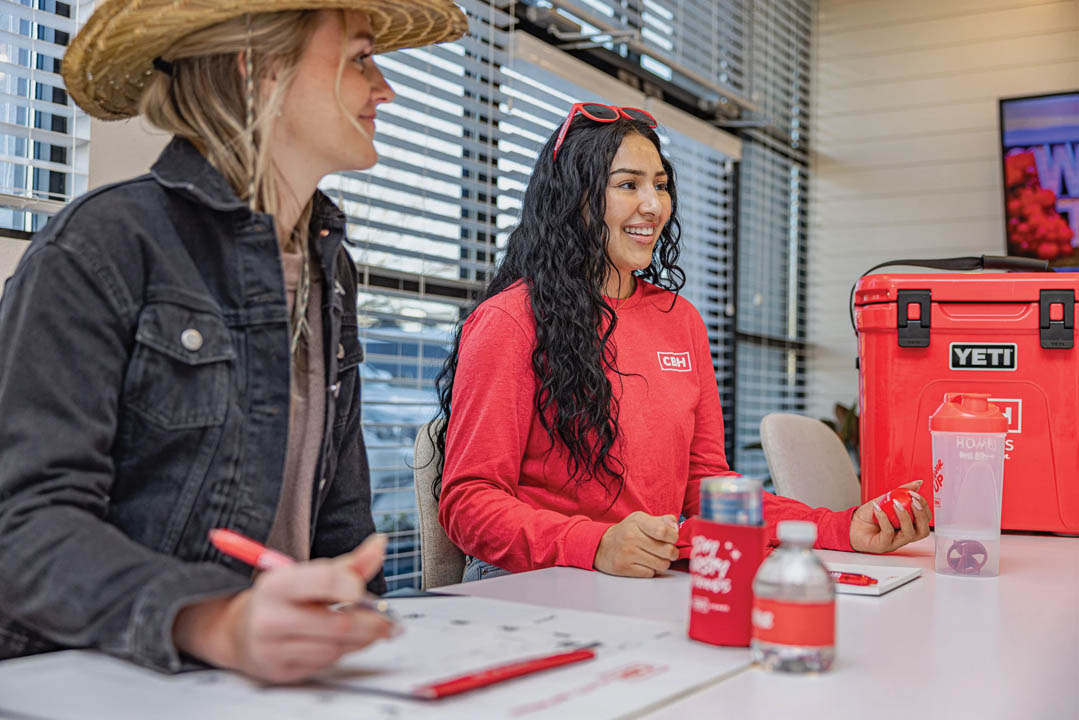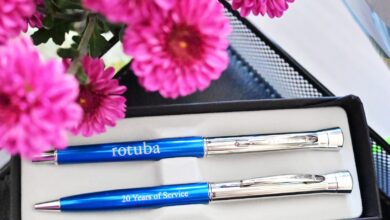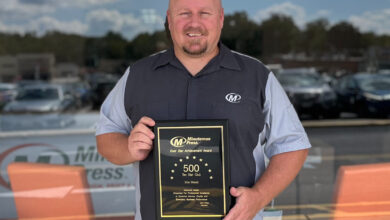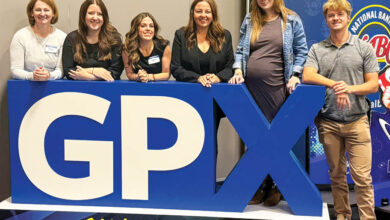Corporate buyers are under more pressure than ever, but promotional products remain one of their most effective tools — if we can help them use them strategically.
For those of us working with corporate clients — especially those in the more traditional 9-to-5 office setting — the past few years have been nothing short of a balancing act. Between hybrid workforces, rising expectations for employee engagement, and now the added layer of economic uncertainty and looming tariff changes, companies are under pressure to do more with less.
Yet, despite the turbulence, branded and promotional products remain a powerful tool for building culture, reinforcing brand identity, and connecting with employees and customers. The key for us as consultants is understanding what’s keeping our clients up at night and helping them see how branded solutions can be part of the answer, not just another line item on the budget.
Here’s what’s currently top of mind for corporate buyers and how we can help meet their needs.
Retaining & engaging employees
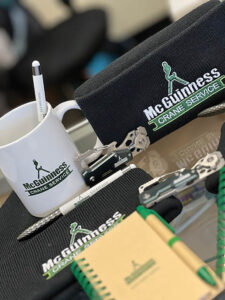 Disengagement remains a costly challenge for employers; promotional products are a proven driver of employee engagement. Corporate clients are leaning heavily on branded products to reward, recognize, and reengage teams. According to the Society for Human Resource Management, recognition programs that incorporate tangible rewards can improve engagement and reduce turnover by as much as 31%.
Disengagement remains a costly challenge for employers; promotional products are a proven driver of employee engagement. Corporate clients are leaning heavily on branded products to reward, recognize, and reengage teams. According to the Society for Human Resource Management, recognition programs that incorporate tangible rewards can improve engagement and reduce turnover by as much as 31%.
Branded items are especially popular for businesses with hybrid or remote teams, which require an extra effort to make these employees feel connected to the company culture. Small items like branded tumblers, polos, or desktop gadgets can help employees feel part of the team, whether they’re working at the next desk or in the next country. The shift is toward quality, not quantity; fewer, more meaningful pieces that feel like a true “Thank you,” not cheap swag destined for the drawer.
Bridging the hybrid divide
Speaking of hybrid and remote teams, the fact is that many offices aren’t back to pre-2020 capacity, and most don’t plan to be. Companies need products that bridge the gap between remote and in-office employees, such as home office essentials, tech accessories (wireless chargers, earbuds, Bluetooth speakers), and other desk-friendly gear that supports productivity. Practicality is king here, and clients are gravitating toward items employees will actually use — utility over novelty.
In this same vein, more companies are bringing teams together through annual meetings, leadership retreats, and milestone celebrations. Branded products are key to creating memorable, cohesive experiences, serving as both functional event tools and lasting mementos.
Brand consistency & visibility
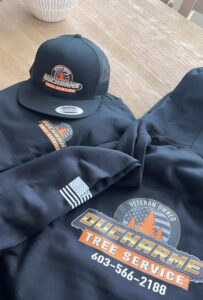 As brands grow more design-conscious, clients expect high-quality, cohesive branding across all promotional items. This means consistent colors, precise logo applications, and products that align with the broader marketing aesthetic. Companies don’t just want their logo on something — they want their brand reflected in every touchpoint.
As brands grow more design-conscious, clients expect high-quality, cohesive branding across all promotional items. This means consistent colors, precise logo applications, and products that align with the broader marketing aesthetic. Companies don’t just want their logo on something — they want their brand reflected in every touchpoint.
Companies seeking to attract clients or customers want items that will be used. They’re looking for products that are designed for both convenience and visual appeal, avoiding waste while maximizing impressions.
One of the most reliable and enjoyable forms of brand visibility is holiday gifting, a category that remains strong and is likely to remain so. Clients, customers, and employees expect to receive recognition of their value at this time of year. And smart businesses don’t limit “holiday” gifting to end-of-year celebrations. How about a Happy New Fiscal Year gift in July
or October?
The more thoughtful the gift, the higher the value you’re declaring, and the more likely the recipient is to use it or display it prominently. It won’t be just the logo that causes them to remember you fondly.
Companies are still sending curated gift boxes and other traditional items, but more of them are moving toward one-off, high-impact gifts, such as customized insulated mugs or wearables.
Sustainability & ESG alignment
Corporate responsibility is more than a buzzword; many clients are now required to show progress toward ESG goals. This is driving demand for eco-friendly, ethically sourced promotional products, particularly among younger demographics. About 12% of promotional product sales, some $3 billion, originated from the sustainability segment in 2023, according to Promotional Products Association International. The number reflects the overall trend toward eco-friendly purchasing; Capital One Shopping reported that eco-friendly shopping represents an estimated 19.4% of American retail spending as of this year, and if trends continue, 23% of spending will be eco-friendly in 2032.
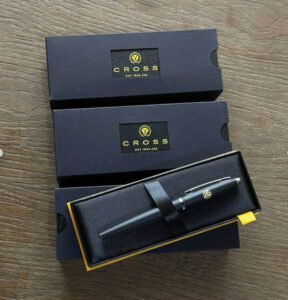 The sustainability movement is now powered by evolving regulations around labeling and chemical safety, which are pushing suppliers to upgrade compliance and documentation processes. Be prepared to provide buyers with your products’ life cycle data, supply chain transparency, and material traceability. Recycled materials, minimal packaging, and carbon-neutral shipping are becoming key selling points.
The sustainability movement is now powered by evolving regulations around labeling and chemical safety, which are pushing suppliers to upgrade compliance and documentation processes. Be prepared to provide buyers with your products’ life cycle data, supply chain transparency, and material traceability. Recycled materials, minimal packaging, and carbon-neutral shipping are becoming key selling points.
Navigating budget pressures & proving ROI
More than ever, corporate buyers must justify their spending to leadership. They want to understand how promotional programs build loyalty and engagement, support recruiting and retention, and generate brand impressions beyond the office.
When you consider this with the proposed tariffs on imported goods creating uncertainty around pricing and availability, we as consultants have the opportunity to really stand out by proactively recommending alternatives and connecting dots — like tracking usage, incorporating feedback, and even tying products to measurable outcomes.
The consultant’s role in 2025
In today’s climate, our job goes far beyond product sourcing. Corporate clients don’t want a transactional vendor; they want a partner who anticipates challenges, offers strategic guidance, and simplifies execution. By staying attuned to their evolving priorities, we can position promotional products as a strategic tool for culture and connection, rather than a discretionary expense.
For those of us in the industry, that means staying agile, educating our clients, and delivering solutions that not only meet their needs but elevate their brand in the process.
